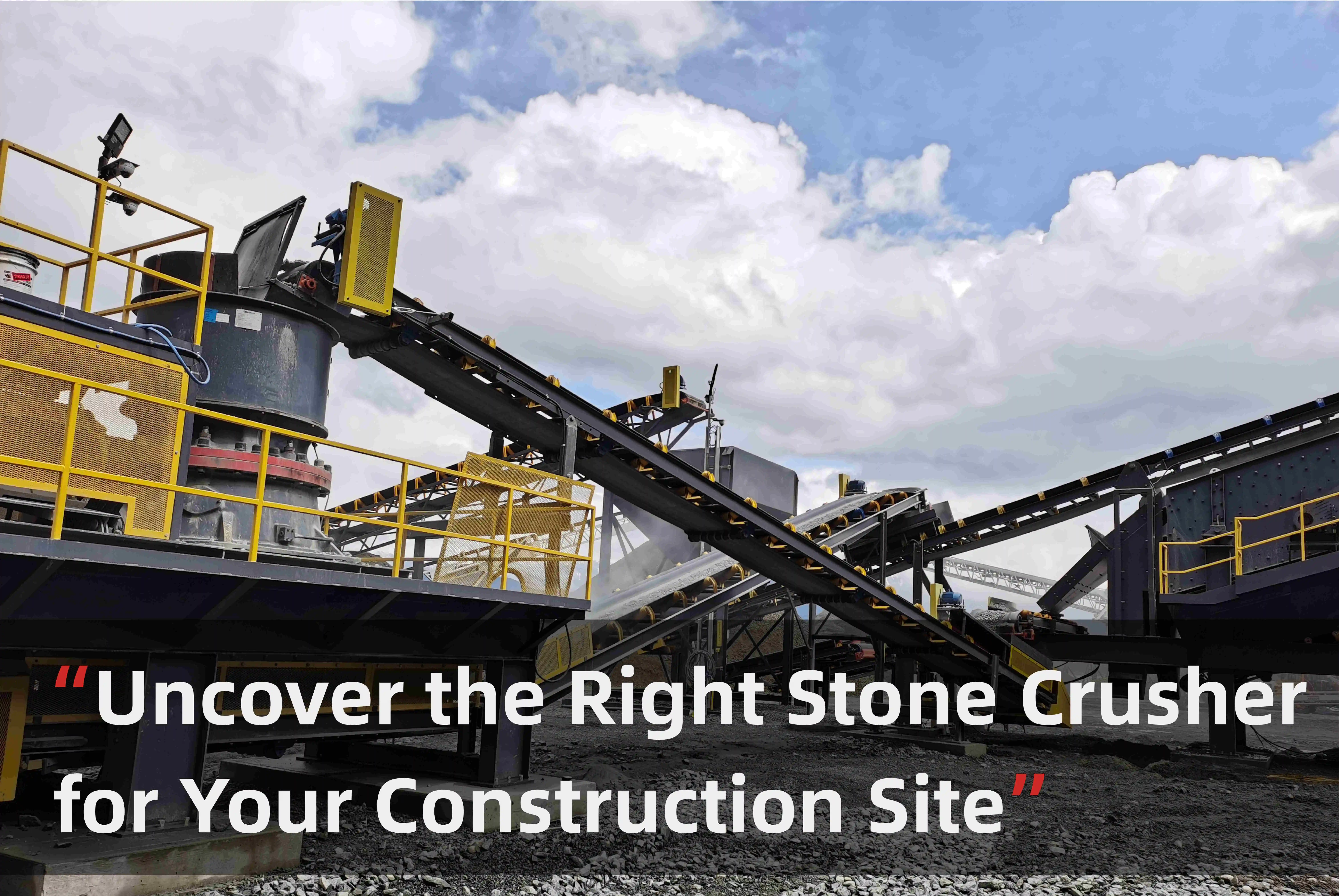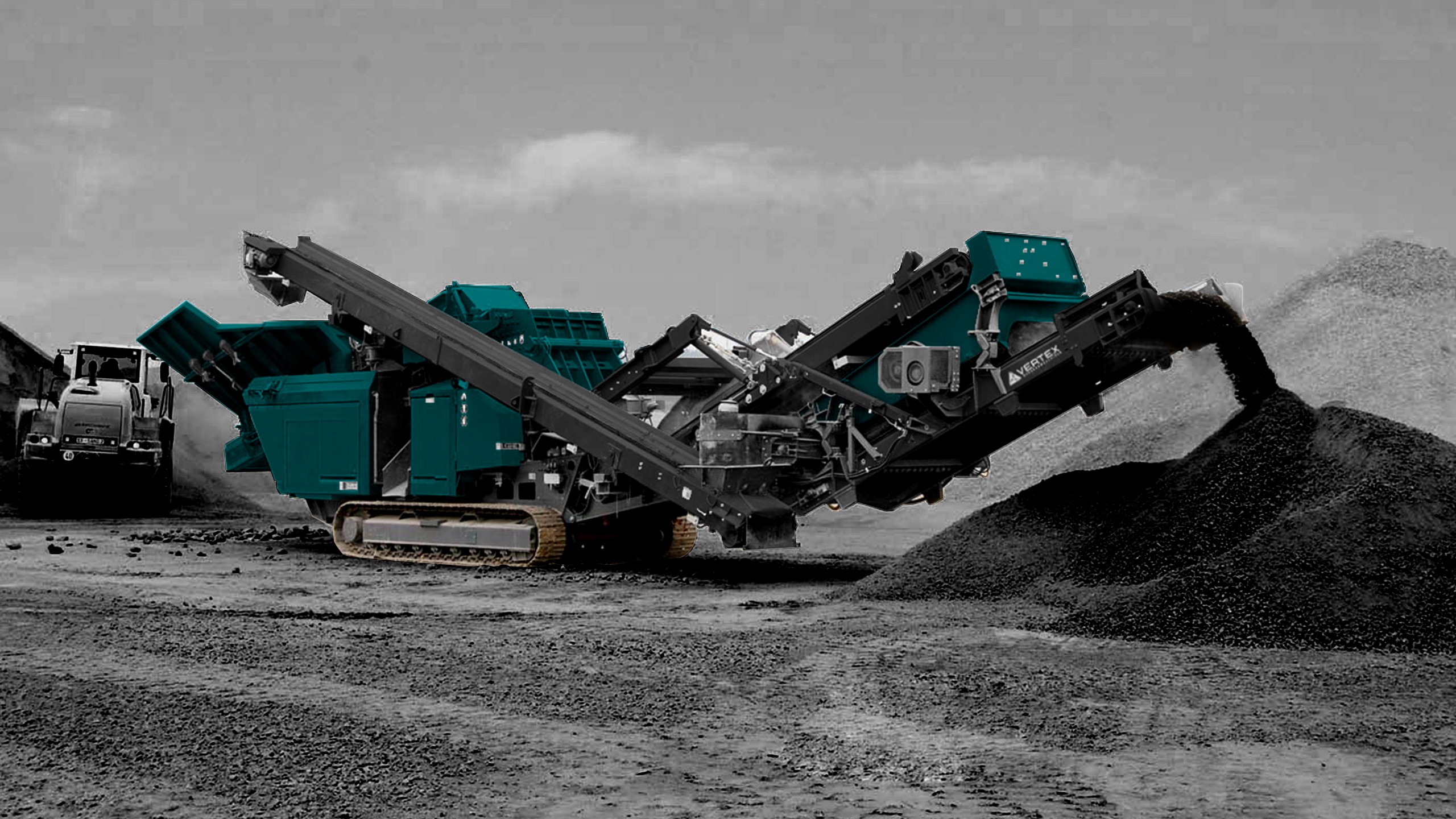
In the construction industry, success hinges on the ability to process raw materials efficiently and economically. Whether you’re building roads, laying foundations, or creating aggregates for commercial use, the role of the stone crusher is critical. A well-chosen stone crusher can boost productivity, reduce costs, and improve end-product quality. Conversely, selecting the wrong type can result in frequent breakdowns, high maintenance costs, and poor material throughput.
So how do you determine which stone crusher is right for your construction site?
This guide will walk you through the common types of stone crushers, explain their suitable applications, and highlight the critical factors that influence your equipment choice.
Before diving into specific selection factors, it’s essential to understand the key stone crusher types available in today’s market. Each type is designed with specific functions and material compatibility in mind.
Jaw Crusher

Primary Use: Coarse crushing of large rocks and hard materials
Material Suitability: Granite, basalt, quartz, iron ore
Application Scenario: Ideal for the initial stage of crushing in fixed or mobile crushing lines
Key Features: High throughput, rugged construction, large feed opening
Cone Crusher
Primary Use: Secondary or tertiary crushing for finer material output
Material Suitability: Medium to high-hardness rocks like basalt, granite, river stones
Application Scenario: Used after jaw crushers in multi-stage crushing systems
Key Features: High reduction ratio, uniform particle size, superior wear resistance
Impact Crusher
Primary Use: Producing cubic-shaped finished products
Material Suitability: Soft to medium-hard materials like limestone, concrete, bricks
Application Scenario: Suitable for road base materials, construction aggregates
Key Features: Adjustable output size, high crushing efficiency, ideal for recycling
Hammer Crusher
Primary Use: Crushing brittle materials with low to moderate hardness
Material Suitability: Coal, salt, chalk, gypsum
Application Scenario: Used in small-scale production or cement plants
Key Features: Simple structure, low cost, fast operation
Mobile Stone Crusher
Primary Use: Flexible and portable crushing on-site
Material Suitability: Varies by configuration (jaw, cone, or impact modules)
Application Scenario: Remote or temporary construction sites, where mobility is essential
Key Features: Quick setup, compact footprint, integrated power and control systems
Selecting the right equipment is not just a matter of matching the crusher type with the material.
Many variables come into play, and overlooking even one could lead to inefficiencies or equipment mismatch.
Raw Material Type and Hardness
Your choice begins with understanding the material to be processed. Is it soft like limestone or hard like granite? Crushers are designed to handle specific material hardness:
Feed Size and Desired Output Size
The feed size determines whether you need a primary, secondary, or tertiary crusher. Similarly, the final output size impacts the type of machine:
Throughput Requirements (tons per hour)
Your production capacity directly influences the crusher’s size and power:
Site Constraints and Space Availability
Some construction sites have limited maneuvering space or height restrictions. In such cases:
Desired End Product Shape and Specifications
If you're producing material for concrete or asphalt, the shape and consistency of the output matter:
Your customers’ product requirements should guide your decision.
Budget and Operational Cost Considerations
Initial capital investment isn’t the only financial factor. Consider:
Energy Efficiency and Environmental Compliance
With increasingly strict environmental regulations, choosing energy-efficient and low-emission crushers is essential:
Eco-compliant crushers not only meet legal standards but also improve your corporate sustainability profile.
Multi-Stage Crushing and Integration with Other Systems
Some projects require more than one crusher:
Opting for integrated systems can save setup time and reduce operational complexity.
Even experienced operators can make costly errors. Avoid these pitfalls:
Being methodical and thorough during the selection process pays off long term.
The Right Crusher Is a Strategic Advantage
Choosing the right stone crusher for your construction site is not just about crushing rock—it’s about maximizing your efficiency, meeting project timelines, and controlling costs. By evaluating the type of material, desired output, site conditions, and operational goals, you can select a crusher that’s perfectly tailored to your needs.
At VertexCrusher, we offer a full range of stone crushing equipment, from mobile jaw units to complete integrated crushing and screening plants. If you’re ready to elevate your crushing operation, our team of experts is here to help you choose the ideal solution for your site.